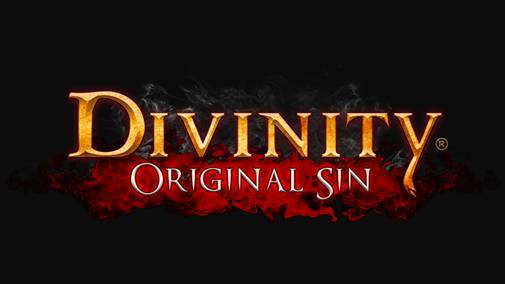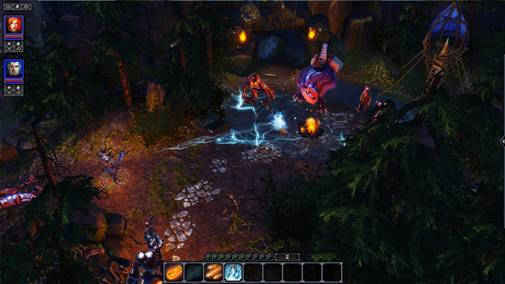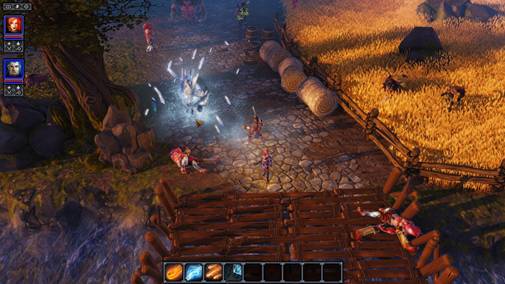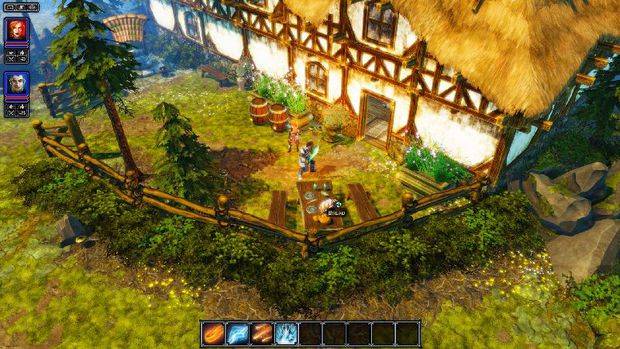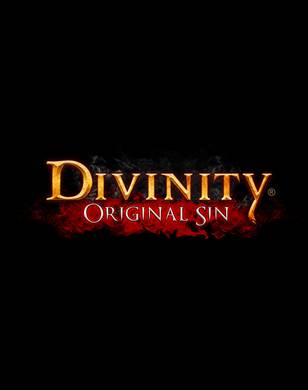We recently had an opportunity David Walgrave, Producer of Divinity Original Sin. The interview shelves interesting new details about the attitude and reputation system, various spells you will find in the game and the many dynamic aspects of the game. Check out the full interview below.
Rashid Sayed: Given that story and narration are an important aspect of role playing games, what steps is the development team taking so that Divinity: Original Sin tells a cohesive and an interesting plot?
David Walgrave: We have the main story pretty much written. The main story and the main characters can be explained in one or two pages, depending on how much detail you want. I believe we have a very interesting main plot with lots of secrets, surprises, and plot twists to keep the player interested and entertained.
We try to make sure that all the sub-quests, non-main characters and storylines on the side, have something to do with the main story. They add color to it, make it richer, give it a background. The player doesn’t need all this information to understand or finish the story, but they all do add credibility to the main story and makes the world feel as one big whole.
So the story writing process, we’ve got it pretty much worked out. There’s always enough people involved to make sure everything still makes sense. There is one main writer, but the writing process happens in groups of people, not only to add to the creativity, but also for error checking. All the designers know the story, and sometimes still find plotholes while implementing things, and we do listen to them of course.
The biggest problem is that the Divinity universe has become very deep, its background very rich. We need to make sure, especially with a prequel, that everything that will happen in the following games still makes sense.
Divinity II: Ego Draconis received mixed reactions from the critics as well as the players. One of common complaints were visual inconsistencies and limited field of view. Are you guys addressing these issues in Original Sin?
I think Divinity Original Sin is a completely different animal. It’s top down and the art direction is a bit different. With a topdown, fixed camera, field of view isn’t that much of an issue. And the good part is that visual inconsistencies really stand out so we can take on those as soon as they catch your eye. The art director is constantly verifying the quality of all the assets, and checking if everything blends in with the art style. It is a bit more outspoken this time around, so I believe inconsistencies will be easier to tackle. Of course, when working on an RPG, there’s an entire team of artists working on it who all have their individual interpretation of that style, so the trick and task for the director and team leaders are not easy.
Ego Draconis was released for the PC, Cloud as well as on Xbox 360. But till date, only the PC version of Divinity: Original Sin have been announced. Is there a specific reason to this? Do you guys have plans to bring the franchise to Xbox 360/PS3?
We are now first working on the PC version. When we did Ego Draconis, we were working on PC and XBOX360 simultaneously, and in hindsight, catering for the XBOX hardware and sometimes even XBOX audience had an impact on the PC version. Sometimes it made the game better, but from a technical and technological point of view, the PC version of Ego Draconis could have been much better. We resolved those issues on PC with patches, and with our latest, ultimate version, Divinity 2: Developer’s Cut.
At the moment, there have been parties interested in bringing Original Sin to the console, but we are focusing on PC first.
How does interaction with different objects in the game affect gameplay?
It’s just like in other RPGs, but we’re taking it further. Why would we only be able to pick up weapons, armour and potions? The other stuff in the world weighs about as much, or less, so you should be able to pick those up and move them around as well. Sometimes it’s just fun to be able to do it, sometimes it’s useless, but we’re using it to our advantage and try to make sure it adds to the gameplay of the game.
For instance, you can use objects in combat. Move them around to block people, throw them at people, use them in combat to your advantage by recognizing an inherent quality or ability in them and “activating” that. Being able to move items also allows us to create puzzles or hide things. And of course, you can pick up seemingly useless items and combine them together to create something useful or something expensive.
One of your recent gameplay demos introduced a character called ‘Sarah’. When we actually move the objects around her, she gets a bit irritated. Is that kind of system dynamic in nature? Will ‘Sarah’ would have reacted differently if the player did not messed around with her belongings?
Yes, it’s dynamic, and as long as you don’t mess with people’s belongings, they will be friendly. Items in the world belong to either nobody, or to someone. If that someone sees you taking something or moving something, he will become a bit aggravated.
How does the attitude system work? Is it totally reliant on the options the user selects?
Actually, there is attitude and there is reputation.
Attitude is personal, individual: everyone in the world has a different attitude towards you. You can have a direct impact on that depending on your actions. Everyone has an initial attitude which defines whether they will fight you or help you in a fight, or whether they’re simply neutral.
For instance, merchants are neutral. If you trade often with one specific merchant, he will start recognizing you as a returning customer, and he will start liking you. That affects his prices. If you tick him off, you can offer him more money or trade something for less money than it’s worth, and that will raise his attitude towards you again. If you steal from this merchant a lot, or you did something else to him to make his life miserable, he will ask a lot of money for his goods, will not pay you good money for your items, and if you really messed up, he may even start fighting you.
Reputation on the other hand, is global. The more stuff you do or don’t do, and the choices you make in the world, no matter whether they are good or bad, gives you more renown. At the start of the game, people will not know you, but after a while, they will start recognizing you, and in the end, you’ll be a hero, famous or infamous, it doesn’t matter.
Can you please explain the combat system and how different it is from the previous instalments?
The combat system in Original Sin is turn based. This is completely different from previous games, that all had realtime, action-oriented combat.
What different weapons, item combinations and magic powers players can expect to be in the game?
At the moment, we are planning lots of different weapon types, but I don’t want to give a list, because that can still change in the course of production. Let’s just say we’re not stopping at swords, bows and axes.
Magic has six “schools” at the moment: earth, wind, fire, water, warrior and survivor. The four first schools are elemental magic schools, and those spells interact with each other and the world as you would expect. For instance, water puts out fire. So there’s a bit of a rock-paper-scissors game going on between the different spells, and you’ll be able to use that against enemies that have similar powers, and against and in combination with things in the world that are susceptible to the elements.
Item combinations, there’s dozens and dozens of different ones, and we still come up with new ones every day. It’s simple stuff such as creating your own potions (empty jar + the right ingredient), enhancing potions (healing potion + apple = detox potion), storing bottles of poison (empty jar + poisonous ingredient), enhancing weapons (weapon + poison). But also more complex and more intricate creations such as voodoo dolls, which is not just a two step process.
Weather manipulation seems to be an exciting feature. How does it work in the game? Can we bring about stuff like thunders and earthquakes in the game?
There are such spells in the magic schools, yes.
The game is confirmed to have co-operative modes included. Can you please explain how these will work in online and offline environments?
Currently, coop is only available online.
Players can roam the level freely, they don’t have to stick together, but it helps in solving puzzles and taking on enemies.
We’re also involving both main characters in dialogs. Every time the party has to make a choice, and both players are close to one another, they have to choose what to do. If they are in disagreement, the rpg system takes care of who wins the discussion. We’re also keeping track of how often they agree and disagree and use that later on in the story. It’s a feature that cannot really be explained in short, but it’s cool to see in action.
Are we going to see loading screens when the player moves from one area to another?
Yes, the world is split up into levels. We’re making sure there aren’t too many level loads, but with the character count and item count that we need to take care of, this is currently the only way we can offer all this content.
What were the advantages of working on the PC platform? Of course other than high resolution textures and high frame rates, what advantage does the PC have over the PS3/X360 in your opinion?
It’s probably a very personal opinion, but I find interacting with the world and the user interfaces a lot more intuitive on a PC.
I just asked a programmer’s opinion, and he says developing for PC is more flexible, more forgiving. It’s a more open platform where it’s easier to do something the way you want it to, rather than having to do it the way the console expects you to do it. On PC, you don’t need to adhere to TCRs and other specific requirements and expectations.
The hardware limitations of a console not only have an impact on textures and framerates, they are also limiting the amount of different characters and items you can put in a region.
Development cycles on a PC are faster too. Developing tools, testing out something, all that goes faster. On a console, you need to build to specific formats. On PC, you define these yourself.








